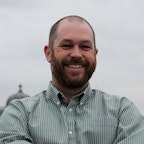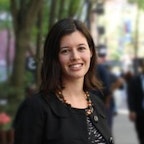About this course
Should we be trying to electrify everything? Is it practical for existing and new buildings with the technologies we have now? Two engineers with different takes on these questions will debate electrifying residential buildings, from small single-family to high-rise apartments. Both speakers have years of experience with heat pump technologies (mini-splits, PTHPs, water-source HPs, VRF, and several types of heat-pump water heaters). They’ll present examples of buildings where these systems worked wonderfully, where performance was less than ideal, and a few absolute failures. Too often, building professionals – designers, engineers, contractors, building owners/operators, utilities, and even manufacturers – don’t fully understand how these new systems work. Come learn from others’ mistakes, understand how these systems can be used well, and consider: Are there buildings where electrification doesn’t yet make sense?
Professional credits (or CEUs, "continuing education units") are not available at this time; check back later for options to earn credits.
Learning Objectives
- Select heating & cooling equipment of the right size and type to meet comfort and efficiency goals
- List the most common pitfalls of heat pump water heaters
- Describe the impact of refrigerant on water heater performance
- Weigh climate impacts along with practical implications of electric heat and hot water systems
Course outline
Module 1 • 1 assignments
To Electrify or Not to Electrify
Authors

Robb Aldrich
Robb joined Steven Winter Associates in 2000 where he has researched new technologies, monitored performance of building systems, and worked with builders and developers across the country to create better, healthier, more efficient homes. He holds a Master’s degree in Building Systems Engineering from the University of Colorado Boulder. Robb first became interested in...

Nicole Ceci
As a principal engineer in the Multifamily Group at Steven Winter Associates, Nicole Ceci assists clients to meet energy savings goals in New York, New Jersey, Washington DC, Massachusetts, and Connecticut. Her building science experience includes design and implementation of high-performance HVAC systems and data analysis of building performance. Since joining SWA, Ms....
